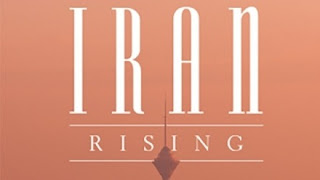 |
| Source: ANU. Cover for Iran Rising. |
At the time, Iranians overthrew their monarchy, rejecting a pro-Western shah in favour of an Islamic regime. Forty years later, Iran has emerged as a critical player in the Middle East and the wider world, as demonstrated in part by the 2015 international nuclear agreement.
In Iran Rising, Iran specialist Amin Saikal, Distinguished Professor of Political Science, Public Policy Fellow, and Director of the Centre for Arab and Islamic Studies (the Middle East and Central Asia) at the Australian National University (ANU), describes how the country has managed to survive despite ongoing domestic struggles, Western sanctions, and other challenges.
Saikal explores Iran’s recent history, beginning with the revolution, which set in motion a number of developments, including war with Iraq, precarious relations with Arab neighbours, and hostilities with Israel and the US. He highlights the regime’s agility as it navigated a complex relationship with Afghanistan during the Soviet invasion, survived the Gulf wars, and handled the fallout from the Iraqi and Syrian crises.
Such success, Saikal says, comes from a distinctive political order, comprising both a supreme Islamic leader and an elected president and national assembly, which can fuse religious and nationalist assertiveness with pragmatic policy actions at home and abroad.
Saikal also wrote The Rise and Fall of the Shah (Princeton) and Modern Afghanistan (IB Tauris).
Explore:
Listen to an extract from the audio book